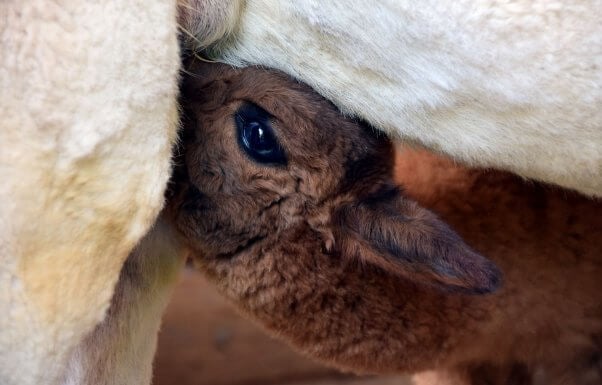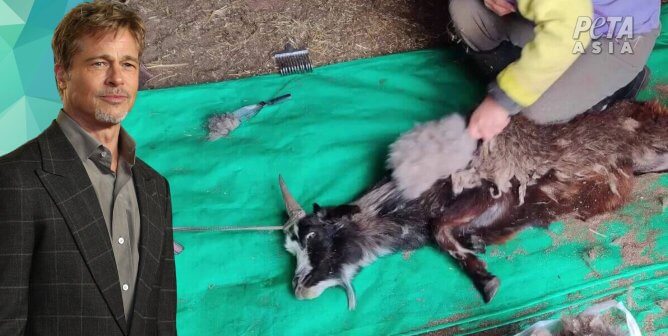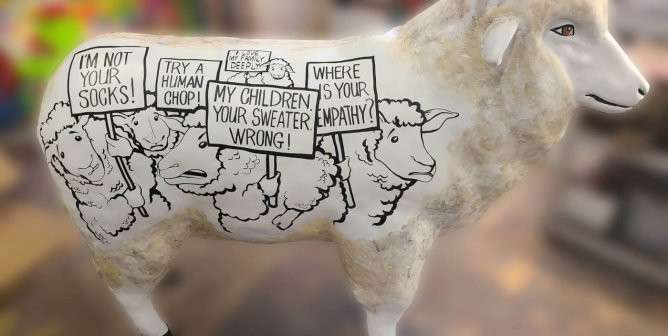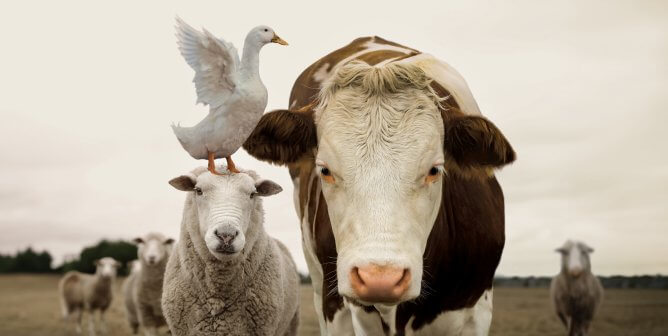5 Reasons to Love Alpacas (Not Cut Them Up or Wear Their Fleece)
What is an alpaca? They’re actually quite remarkable animals. (Duh!) And just as acclaimed author Gene Stone and PETA President Ingrid Newkirk tell us in Animalkind, there are many important “ways to show them compassion.” So absorb these notable alpaca facts and discover the one simple thing that we can all do to show these vulnerable animals kindness:
-
What is the difference between a llama and an alpaca?
Alpacas are a mix of vicunas (a South American member of the camel family) and llamas—they’re “human-made” animals who are raised so that their fleece can be violently sheared off their bodies, made into sweaters and scarves, and sold by companies such as Anthropologie.
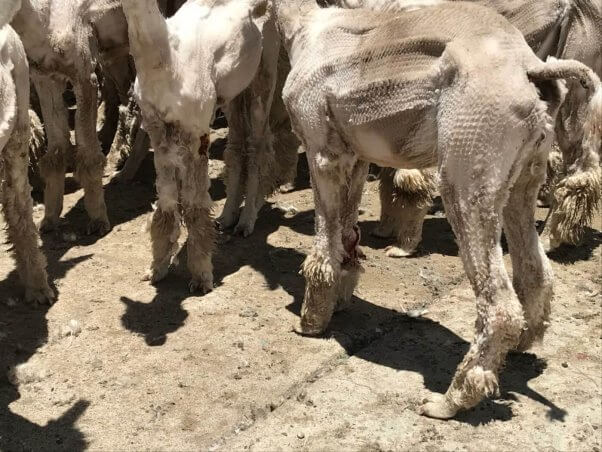
Like “designer” dogs inbred at the expense of their own health and tiger/lion hybrids bred to suffer for an exhibitor’s quick buck, alpacas were created by greedy humans looking to profit from fleece that isn’t theirs to take.
-
Our animal companions and alpacas are more similar than you might think.
Like cats with their litterboxes, alpacas don’t do their business just anywhere—they have a designated place where they relieve themselves. Those in a herd all use the same “bathroom” area, much like certain lemurs and other animals, which can help control the spread of parasites.
“Are alpacas dangerous?” No—just like our canine friends, alpacas can be described as docile, gentle, curious, and social. Some can be shy and timid. For alpacas, it’s the humans raising and shearing them who are dangerous.
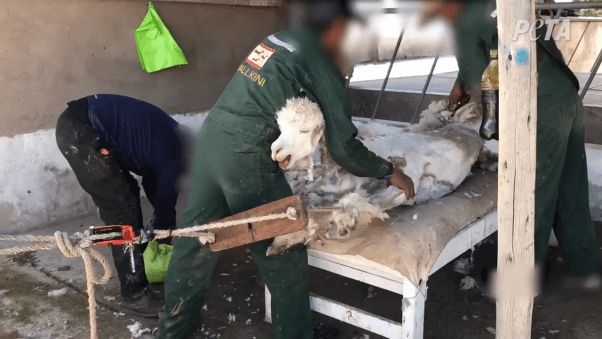
Alpacas have their own version of barking or meowing, too: humming. They hum to communicate with their herd and express their emotions.
-
Alpaca moms carry their cria (or baby) for roughly 355 days.
An expectant alpaca has a gestation period of 11 to 11.5 months. Alpacas give birth to one baby—called a cria—at a time. Like many mothers, alpaca moms are very protective of their young, who typically nurse for six to eight months.
In the fleece industry, expectant alpacas are seen merely as hair-producing pieces of equipment. In a first-ever exposé of the alpaca-fleece industry, PETA’s undercover investigation showed pregnant alpacas slammed onto tables, all just for sweaters, scarves, or balls of yarn.
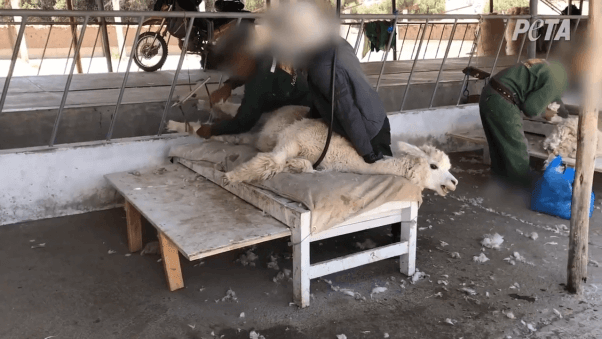
-
Just like us, alpacas feel fear.
“Why do alpacas spit?” is a commonly asked question about the animal. Like camels, they often spit because they’re distressed—typically, when they feel threatened. When they feel that they’re in danger, alpacas may shriek, too.
PETA’s investigation exposed how alpacas used for their fleece have much to fear. At Mallkini—the world’s largest privately owned alpaca farm in Peru—workers hit, kicked, tied down, and mutilated crying alpacas. Able to hear, smell, and see what was happening, other alpacas huddled together in fear.
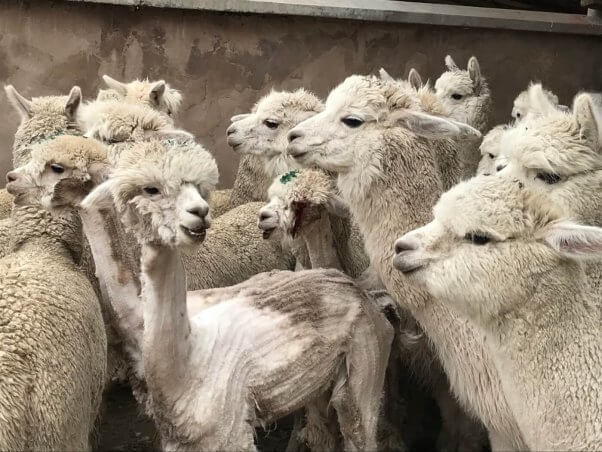
Restraint is highly distressing to alpacas, who are prey animals and fear that they’re about to be killed. At Mallkini, terrified alpacas cried out, spit, and vomited in fear as workers grabbed them by the ears.
-
True or false: Alpacas are killed for their fleece?
Alpacas at Mallkini and other similar farms are right to be fearful. Just like sheep used for their wool, cows used for their milk, and chickens used for their eggs, once alpacas used for their hair are no longer wanted for their coats, many are slaughtered for food.
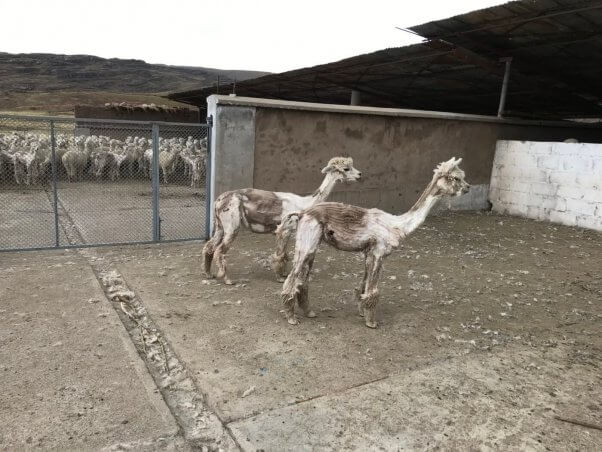
Alpacas Need Our Help
The best thing that you can do for alpacas is refuse to buy anything made of their fleece! It’s easy to check the label when you’re shopping. If it includes the word “alpaca,” leave it on the shelf. Please also ask Anthropologie to drop alpaca items immediately in favor of animal-friendly materials:
We should all always strive to be the compassionate humans alpacas—our fellow living, feeling beings—deserve. They, like all other animals, deserve to coexist with us in peace.
Impress your friends: Order a copy of Animalkind and show off your animal trivia skills!
As an Amazon Associate, PETA earns from qualifying purchases. If you buy something after clicking the Amazon links on this page, a percentage of the qualifying purchase will be donated to PETA and help us protect more animals from exploitation.

